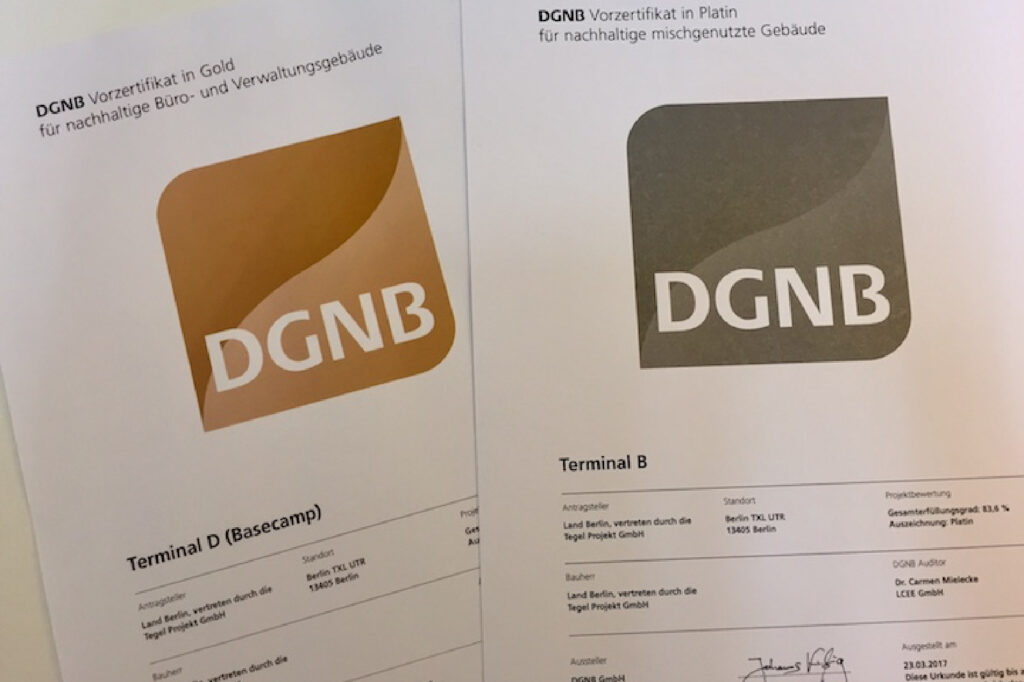So far, there are only three pilot projects nationwide that have been pre-certified according to the DGNB usage profile “New Construction Commercial Quarters”. Berlin TXL – The Urban Tech Republic, the after-use project for Tegel Airport, was already the world’s first commercial quarter to be awarded the DGNB’s “Platinum” sustainability certificate. Now the project can boast three more awards: Terminal B (also platinum) and Terminal D (in gold) as well as the E2 workshop building (gold) have now also been pre-certified. The certification system of the German Sustainable Building Council (DGNB e.V.) is intended to highlight particularly environmentally friendly and energy-efficient buildings that conserve resources and at the same time serve the comfort of the users in the sense of promoting sustainable building. The urban quarters are assessed according to the infrastructure as well as the overarching concepts of the location – for example, the handling of energy, water and waste. When assessing buildings – in this case Terminals B, D and the E2 workshop building – the detailed evaluation of sustainability focuses, among other things, on the resource-saving use of building materials, the reduction of greenhouse gas emissions through the connection to the low-exergy network of Berlin TXL and also the promotion of emission-free individual transport. Dr. Philipp Bouteiller, Managing Director of Tegel Projekt GmbH, speaks highly of the new awards: “Once again, the quality of our planning has been recognised with the highest possible DGNB certification. Berlin TXL is a forward-looking project in which we meet today’s challenges with tomorrow’s solutions – with sustainable construction, a well thought-out mix of functions and smart, forward-looking planning!” At the future research and industrial site Berlin TXL, the DGNB has positively assessed a whole range of sustainability aspects:
- Energy plan – Low-energy grid with cogeneration, geothermal energy, and use of residential process heating. Optimal values in the areas of primary energy and CO2 are achieved. Intelligent control and monitoring of the utility consumption (Smart Grid) makes it possible to optimize consumption.
- Water – The rainwater plan ensures near-natural water treatment and seepage via biologically active soil layers. Bodies of water and transition areas are used for rainwater purification. Cooling and evaporation effects play a significant role for the area’s microclimate.
- Mobility – Establishment of an integrated mobility management. Promotion and networking of eMobility systems, car and bike sharing, cycling (cycle routes, parking facilities, cycle expressway) as well as distribution and delivery systems.
- Recycling – Preparation and redesign of concrete tracks and airport apron areas and existing buildings. Here, synergy effects ensure cost and energy-efficient reconstruction and intelligent re-utilization of building materials.
- Project quality – assessment of project preparation and planning, the urban planning and design concept and the quality assurance of the construction work.
